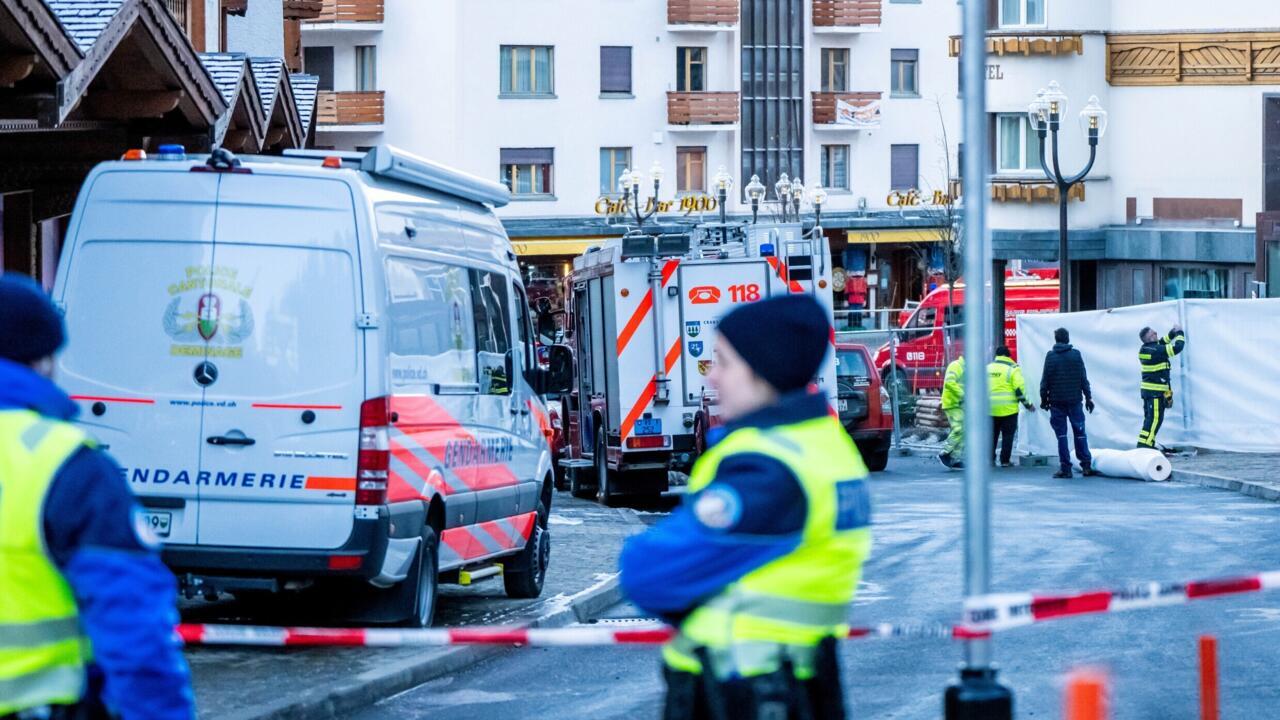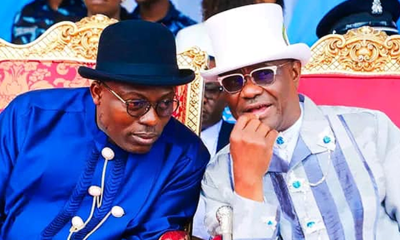News
SA’s Ramaphosa Secures Hard-Fought Re-Election Amidst Political Intrigue

In a dramatic turn of events, Cyril Ramaphosa has been re-elected as South African President, cementing his grip on power after a grueling battle that exposed deep divisions within the ruling African National Congress (ANC). The outcome was far from certain, with Ramaphosa facing stiff opposition from within his own party and from opposition groups. The road to Ramaphosa’s re-election was paved with intrigue and tension. Ahead of the vote, the ANC was rocked by allegations of corruption, factionalism, and backroom deals. Ramaphosa’s detractors, led by
former President Jacob Zuma, had vowed to unseat him, accusing him of failing to address the country’s economic woes and ignoring the plight of the poor. As the party’s national conference got underway, the atmosphere was electric. Delegates from rival factions clashed in heated debates, with some even resorting to physical altercations.
The stakes were high, with the outcome set to determine the trajectory of South Africa’s future. In a surprise move, Ramaphosa secured a crucial deal with opposition parties, including the Democratic Alliance and the Economic Freedom Fighters, to shore up support for his re-election bid. The move was seen as a masterstroke, outmaneuvering his opponents and securing the necessary votes to clinch the presidency. As the results were announced, Ramaphosa’s supporters erupted in jubilation, hailing his victory as a triumph over adversity. The President-elect vowed to unite the party and tackle the country’s pressing challenges, including poverty, inequality, and unemployment.
The re-election of Cyril Ramaphosa marks a significant turning point in South African politics, as the country navigates a complex web of political alliances, economic uncertainty, and social unrest. With his mandate renewed, Ramaphosa faces the daunting task of delivering on his promises and restoring faith in the ANC. The nation holds its
breath, waiting to see if he will rise to the challenge.
News
Trump Warns Cuba to “Make a Deal” Or …
Trump Warns Cuba to “Make a Deal” Or …
United States President Donald Trump has issued a fresh warning to Cuba, urging the Caribbean nation to “make a deal” or face undisclosed consequences, as Washington intensifies pressure following the seizure of Venezuelan leader Nicolás Maduro.
Trump’s comments came amid escalating tensions in Latin America after a 3 January US raid in Caracas that led to the arrest of Maduro and his wife, Cilia Flores, on drug trafficking and other charges in the United States.
Venezuela, a long-standing ally of Cuba, is believed to supply the island with about 35,000 barrels of oil daily, a crucial lifeline for Cuba’s energy-dependent economy.
However, the Trump administration has moved to disrupt that arrangement, confiscating oil tankers allegedly carrying sanctioned Venezuelan crude.
On Friday, US authorities seized a fifth tanker in what officials say is part of efforts to enforce sanctions on Venezuela.
The moves have reportedly worsened Cuba’s fuel shortages and electricity crisis.
In a post on his Truth Social platform on Sunday, Trump declared an end to the oil-for-support relationship between Havana and Caracas.
“Cuba lived, for many years, on large amounts of OIL and MONEY from Venezuela. In return, Cuba provided ‘Security Services’ for the last two Venezuelan dictators, BUT NOT ANYMORE!” Trump wrote.
“THERE WILL BE NO MORE OIL OR MONEY GOING TO CUBA – ZERO! I strongly suggest they make a deal, BEFORE IT IS TOO LATE.”
The US president did not specify what deal he was proposing or the consequences Cuba might face if it failed to comply.
Cuba’s Foreign Minister, Bruno Rodríguez, swiftly rejected Trump’s remarks, insisting that Cuba has the right to import fuel without external interference.
“Our country retains the absolute right to import fuel from any exporter willing to sell, without interference or subordination to the unilateral coercive measures of the United States,” Rodríguez said.
He added that Cuba does not submit to “blackmail or military coercion against other states.”
President Miguel Díaz-Canel also struck a defiant tone, saying no foreign power could dictate Cuba’s actions.
“No one dictates what we do,” Díaz-Canel said, accusing the US of lacking moral authority. “Those who turn everything into a business, even human lives, have no moral authority to point fingers at Cuba for anything, absolutely anything.”
News
40 Dead, 119 Injured in Swiss Ski Resort Bar Fire

40 Dead, 119 Injured in Swiss Ski Resort Bar Fire
No fewer than 40 persons have been confirmed dead following a devastating fire outbreak at a bar in the Swiss ski resort town of Crans-Montana on New Year’s Eve, Swiss police have said.
Authorities on Sunday confirmed that the bodies of all 40 victims have now been identified.
The victims were aged between 14 and 39 years, with 15 of them under the age of 18.
The youngest victims were a 14-year-old Swiss girl and a 14-year-old French boy.
The deceased were drawn from several nationalities, including Swiss, Italian, Romanian, Turkish, Portuguese, French and Belgian citizens, as well as nationals of the United Kingdom, France and Israel, underscoring the international nature of the tragedy at the popular Alpine resort.
In addition to those killed, 119 people sustained varying degrees of injuries, most of them severe burns.
Police disclosed that six of the injured are in such critical condition that they have not yet been identified.
The fire broke out at Le Constellation bar, a venue known to be popular with young people in Crans-Montana, where the legal drinking age is 16.
A preliminary investigation indicated that sparklers attached to bottles and held too close to the ceiling may have ignited the blaze.
Swiss prosecutors have since opened a criminal investigation into the French couple who managed the bar.
The couple, identified by the media as Jacques and Jessica Moretti, are suspected of manslaughter by negligence, bodily harm by negligence and arson by negligence, according to the Valais regional prosecutor’s office.
The lead prosecutor in Valais canton, Ms Beatrice Pilloud, said investigators are examining whether the acoustic foam installed on the bar’s ceiling contributed to the rapid spread of the fire and whether it complied with existing safety regulations.
Police said no further personal details of the identified victims would be released out of respect for their families.
However, some relatives have begun to speak publicly as the scale of the tragedy sinks in.
On Saturday night, the mother of one of the victims, Ms Brodard-Sitre, announced via Facebook that her 16-year-old son, Arthur Brodard, was among those who died.
In an emotional video message, she said the family could now begin mourning, “knowing that he is in peace and in the light,” adding that her son had “left to party in paradise.”
Earlier, while Arthur was still listed as missing, his mother told local newspaper Le Temps that she had been “living a nightmare,” revealing that some of his friends had suffered burns to nearly half of their bodies.
“There are no words – they went through hell,” she said.
Italian media also identified 16-year-old junior golfer, Emanuele Galeppini, as one of the victims.
The Italian Golf Federation paid tribute to the teenager, describing him as a “young athlete who carried passion and authentic values.”
His father reportedly confirmed that the boy was at Le Constellation on the night of the incident, although Italian authorities had initially declined to confirm his death.
News
US Denies War With Venezuela as Tensions Rise After Maduro’s Capture

US Denies War With Venezuela as Tensions Rise After Maduro’s Capture
The United States has insisted it is not at war with Venezuela, a day after US forces carried out strikes that led to the capture of Venezuelan President Nicolás Maduro and his wife, Cilia Flores, in an operation that has sharply escalated tensions between the two countries.
US Secretary of State, Marco Rubio, said on Sunday that Washington’s actions should not be interpreted as a declaration of war, stressing that the operation was “limited and targeted.”
His comments came amid international concern over the implications of the US military action and growing uncertainty over Venezuela’s political future.
According to a spokesperson, Maduro and Flores are expected to appear in a US court on Monday, following their arrest.
The charges they will face were not immediately disclosed, but US officials have previously accused Maduro’s government of corruption, drug trafficking and human rights abuses.
Venezuela’s Defence Minister, Vladimir Padrino, confirmed that the US operation resulted in significant casualties, claiming that a large part of Maduro’s security team was killed, alongside what he described as “innocent civilians.”
Padrino condemned the strikes as a violation of Venezuela’s sovereignty and accused Washington of using excessive force.
In Caracas, the Venezuelan government formally denounced what it called “military aggression” by the United States.
In a statement, the Venezuelan armed forces said they remain loyal to interim President Delcy Rodríguez, signaling that Maduro’s allies still retain control of key state institutions despite his capture.
Trump, speaking in an interview with The Atlantic, warned that Rodríguez would “pay a big price” if she “does not do what is right,” a remark that has further inflamed tensions and raised fears of additional US pressure or sanctions.













